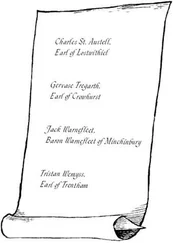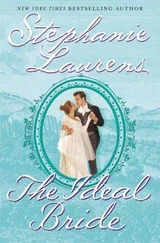Stephanie Laurens - The promise in a kiss
Здесь есть возможность читать онлайн «Stephanie Laurens - The promise in a kiss» весь текст электронной книги совершенно бесплатно (целиком полную версию без сокращений). В некоторых случаях можно слушать аудио, скачать через торрент в формате fb2 и присутствует краткое содержание. Жанр: Исторические любовные романы, на английском языке. Описание произведения, (предисловие) а так же отзывы посетителей доступны на портале библиотеки ЛибКат.
- Название:The promise in a kiss
- Автор:
- Жанр:
- Год:неизвестен
- ISBN:нет данных
- Рейтинг книги:3 / 5. Голосов: 1
-
Избранное:Добавить в избранное
- Отзывы:
-
Ваша оценка:
- 60
- 1
- 2
- 3
- 4
- 5
The promise in a kiss: краткое содержание, описание и аннотация
Предлагаем к чтению аннотацию, описание, краткое содержание или предисловие (зависит от того, что написал сам автор книги «The promise in a kiss»). Если вы не нашли необходимую информацию о книге — напишите в комментариях, мы постараемся отыскать её.
The promise in a kiss — читать онлайн бесплатно полную книгу (весь текст) целиком
Ниже представлен текст книги, разбитый по страницам. Система сохранения места последней прочитанной страницы, позволяет с удобством читать онлайн бесплатно книгу «The promise in a kiss», без необходимости каждый раз заново искать на чём Вы остановились. Поставьте закладку, и сможете в любой момент перейти на страницу, на которой закончили чтение.
Интервал:
Закладка:
And yes, mon ami, she is now the Duchess of St. Ives.
Bonne chance —until next we cross swords.
Sebastian smiled, imagining Fabien reading it. He signed the letter, then sanded it; as he replaced the shaker, a rustling had him turning to the bed.
Brushing back her mane of hair, Helena smiled, languid and sultry, and sank back on the pillows. “What are you doing?”
Sebastian grinned. “Writing to your guardian.”
“Ah.” She nodded, then lifted one hand and beckoned. The gold band he’d placed on her finger the day before glinted. “I think now that it is I you should deal with first, Your Grace.”
His title on her lips, the Rs heavily rolled, was a blatant invitation.
Sebastian left the letter and rose, returned to the bed.
To her.
To the warmth of her arms.
To the promise in her kiss.
Afterword
R EGRETTABLY, neither Sebastian, fifth Duke of St. Ives, nor Helena, his duchess, kept diaries. The following, however, was extracted from the diaries of the Reverend Julius Smedley, who filled the position of chaplain to the Duke of St. Ives from 1767 to 1794. Reverend Smedley officiated at the marriage of Sebastian and Helena and was a faithful recorder of all that took place in his circumscribed world. From him we learn that:
Ariele de Stansion and Phillipe de Sèvres remained at Somersham Place for some years, Phillipe assisting with the management of the estate and Ariele spending much time with her sister. She assisted at the difficult birth of Helena’s only child, Sylvester. Phillipe remained devoted to Ariele through the years, and for her part, Ariele never looked at another, although there were gentlemen aplenty who sought to attract her notice. Consequently, with Sebastian’s assistance, Phillipe bought a sizable holding north of Lincoln. He and Ariele married and moved north, and thus beyond the Reverend Smedley’s purview.
The only other note of interest over those early years of the duke’s marriage was an oblique reference to the death of one Marie de Mordaunt, Comtesse de Vichesse, the wife of the duchess’s and her sister’s erstwhile guardian, also Phillipe’s uncle.
Shortly after, the Terror came to France. Sebastian, working with Phillipe and his own extensive contacts in that country, had already acted to liquidate and remove to England much of Helena’s and Ariele’s inherited wealth, as well as a number of their loyal servants.
Phillipe’s brother, Louis, disappeared during this time, and no more was heard of him.
The St. Iveses, after considerable searching, learned that the comte de Vichesse, called back from Paris to his fortress in the Loire, found Le Roc besieged. The tale that reached London was that the comte, at considerable risk to himself, gained access to the fortress, where he dismissed all his loyal retainers, instructing them to save themselves. Thereafter the comte disappeared. No further mention of the comte appears, either in the Reverend’s diaries or indeed in any account of those times.
However, there is a fascinating mention of a French gentleman who arrived at Somersham a month after the fall of Le Roc. He is described as tall, lean, fair of face and hair, and indeed of address. He commonly wore all black and was observed to be a close comrade of the duke’s; the pair were often to be seen fencing on the terrace.
In a departure from his usual love for detail, Reverend Smedley coyly leaves this French gentleman unnamed.
The Frenchman remained at Somersham for some months, but then, to the duke and duchess’s clear sorrow, determined to leave England. He left Somersham for Southampton, there to take ship for the Americas.
Why Set Romances in the Regency?
TO someone unfamiliar with the genre, the question fairly leaps to the eye—why, of all the time periods in history, is the British Regency (1811-1820) and its flanking time periods so frequently used as the setting for romances?
As a longtime reader of Regency romances, and as an author of fourteen romances all set in the Regency, I have some inklings as to why that might be so—why romance authors and readers both find the Regency so rewarding.
First—and for a romance author very definitely foremost—the concept of love as an appropriate, useful, and perhaps even desirable element within marriage within the upper echelons of society evolved and gained acceptance during the Regency.
Prior to that time, while the concept of romantic love between a man and a woman had been recognized for centuries, among the upper classes, it had not been considered at all necessary in marriage. Indeed, in the minds of many who had lived primarily in Georgian times and were old in the Regency, the new-fangled fashion for ladies to wear their hearts on their sleeves was shocking. And even more shocking when the objects of their affections were their own husbands!
While there were rebels to this prevailing view, both in Georgian times and earlier, they were the exceptions, very definitely not the norm. While much milder "affection" was considered a felicitous circumstance within marriage and entirely appropriate, love was something else again.
The attitude against love (as distinct from affection) in marriage in all likelihood sprouted from the view that love was a potentially dangerous force, one too powerful to be allowed to influence such vital contracts as marriages then were. Marriages were the primary means of merging and furthering familial estates, many of which were huge, politically powerful and wealthy. Divorce, and all the potential legal difficulties which could arise, or any form of marital disruption or instability, were to be avoided at all costs. Love being a force not amenable to the control of men and their laws, it was considered too dangerous to be allowed to touch the institution of marriage. Marriage was, indeed, a civil contract blessed by the church, and as such should not be subject to emotional urges. Thus ran the prevailing wisdom.
Thus, until the Regency, marriage within the upper classes had very little to do with love. It was not only not required, but actively disapproved of. During the Regency, this changed.
What caused this fairly fundamental shift seems buried in the mists of time. But the romantic poets certainly heard the bugle call, and lent their strong and at the time highly influential voices to the push for change.
The waning of French influence on British society was one factor which not only contributed to, but was essential for, the emergence of the acceptance of love within marriage. When it came to love in marriage, the French were even stricter and more disapproving than the English (that was where the attitude had originally evolved from). While very strong during the Georgian era prior to the French revolution, and in the years immediately after, French influence on British society waned and then was eclipsed during the Napoleonic years. During this time, English fashions mirrored the change in English society, as it evolved beyond centuries of French influence, into something distinctly English.
So change came, but it came slowly—even in the 1820s and later, it is likely the majority of marriages within the upper classes were still arranged on the basis of other, unemotional criteria. But love had become acceptable—and having been let into the equation, as it were, love within marriage was always destined to become the ideal. Very much along the lines of monkey see, monkey like, monkey do.
It could be said that the Regency is the first time we see love within marriage as we now know it, and the very fact that this circumstance was unusual—not the norm—makes it easier to highlight, easier to showcase its desirable qualities.
Читать дальшеИнтервал:
Закладка:
Похожие книги на «The promise in a kiss»
Представляем Вашему вниманию похожие книги на «The promise in a kiss» списком для выбора. Мы отобрали схожую по названию и смыслу литературу в надежде предоставить читателям больше вариантов отыскать новые, интересные, ещё непрочитанные произведения.
Обсуждение, отзывы о книге «The promise in a kiss» и просто собственные мнения читателей. Оставьте ваши комментарии, напишите, что Вы думаете о произведении, его смысле или главных героях. Укажите что конкретно понравилось, а что нет, и почему Вы так считаете.












